Alive Blog
Trans fat
The worst food for your heart
In the modern era, where fast food and processed snacks have become an integral part of our diets, it is essential to pay attention to the impact of certain food choices on our overall health. One particular culprit that has gained notoriety is trans fat. With its ability to raise LDL (bad) cholesterol levels and increase the risk of heart disease, trans fat has rightfully earned the title of the worst food for your heart. This article aims to explore the dangers of trans fat and its detrimental effects on cardiovascular health.
Understanding trans fat
Trans fat, also known as trans fatty acids, is a type of fat that is created through a process called hydrogenation. Hydrogenation involves adding hydrogen to liquid oils to solidify them, thus increasing their shelf life and stability. This process was initially developed to replace saturated fats with more stable fats in processed foods.
They can be found in a wide range of food products, including margarine, baked goods, fried foods, and many packaged snacks. It is often used because it enhances flavor, extends shelf life, and gives a desirable texture to foods. However, despite these culinary advantages, the consumption of trans fat poses a severe risk to cardiovascular health.
The Impact on cholesterol levels
One of the key reasons why these type of fat is detrimental to heart health is its effect on cholesterol levels. Unlike other types of fats, t-fat raises LDL cholesterol (commonly referred to as bad cholesterol) while simultaneously lowering HDL cholesterol (good cholesterol). This imbalance between LDL and HDL cholesterol is a significant risk factor for heart disease.
High levels of LDL cholesterol can lead to the buildup of fatty deposits in the arteries, a condition known as atherosclerosis. Over time, these deposits can narrow the arteries, impeding blood flow to the heart and increasing the risk of heart attacks and strokes. Additionally, the reduction in HDL cholesterol diminishes the body’s ability to remove LDL cholesterol from the bloodstream, further exacerbating the risk of cardiovascular disease.
Inflammation and oxidative stress
T-fat has also been found to promote inflammation and oxidative stress within the body. Chronic inflammation is a significant contributor to the development of various diseases, including heart disease. Not only, when trans fat is consumed, it triggers an inflammatory response in the body, leading to increased levels of pro-inflammatory substances. This means that if there is an underlying problem let’s say within your lower back, eating trans fat will contribute to keep the inflammation alive.
Moreover, trans fat promotes oxidative stress, which occurs when there is an imbalance between harmful free radicals and the body’s antioxidant defenses. Oxidative stress can damage cells, including those lining the blood vessels, contributing to the development of atherosclerosis.
Increased risk of heart disease
Numerous studies have established a strong link between trans fat consumption and an increased risk of heart disease. A systematic review and meta-analysis published in the New England Journal of Medicine concluded that trans fat consumption is associated with a higher risk of coronary heart disease.
Furthermore, the World Health Organization (WHO) estimates that t-fat intake contributes to over 500,000 deaths from cardiovascular disease each year. Recognizing the significant health risks posed by trans fat, many countries have implemented measures to limit its use in food products. Some have even gone as far as banning trans fat altogether.

In addition, research has consistently shown that trans fats have several other negative health effects, especially in relation to cardiovascular health. Here are some key findings from research in the last decade:
Insulin Resistance and Diabetes
Some studies suggest that high consumption of t-fats may be associated with an increased risk of insulin resistance and type 2 diabetes.
Mechanisms of Action of trans Fatty Acids
Trans Fat Intake and Its Dietary Sources in General Populations Worldwide: A Systematic Review
Cognitive Impairment
There is evidence that a diet high in trans fats might be associated with cognitive decline and an increased risk of neurodegenerative diseases.
New data on harmful effects of trans-fatty acids
Adverse Pregnancy Outcomes
Maternal intake of t-fats during pregnancy has been associated with adverse outcomes for both the mother and the child, including an increased risk of gestational diabetes and lower birth weight.
Trans fatty intakes during pregnancy, infancy and early childhood (PubMed)
Industrially produced trans fat: Usage, health implications, global and indian regulations (PubMed)
Female Fertility and the Nutritional Approach: The Most Essential Aspects (PubMed)
The Influence of Metabolic Factors and Diet on Fertility (PubMed)
As a result of this accumulating evidence, many health organizations, including the World Health Organization (WHO) and the Food and Drug Administration (FDA), have taken steps to reduce or eliminate the use of trans fats in the food supply. Some countries have implemented policies to ban or limit the use of trans fats in processed foods.
To access other peer-reviewed articles on this topic, you can use academic databases such as PubMed, Scopus, or Google Scholar and search for terms like “trans fats health effects,” “trans fats cardiovascular risks,” or “trans fats and diabetes.” By doing so, you’ll find the latest research and scientific publications related to the negative effects of trans fats.
Alternatives and solutions
The good news is that reducing or eliminating trans fat from your diet is within your control. By making informed food choices and reading nutrition labels, you can minimize your consumption of trans fat. Here are some tips to help you make heart-healthy choices:
Read ingredient labels: Make it a habit. Look for foods that do not contain partially hydrogenated oils, as these are likely to contain trans fat.
Choose healthier fats: opt for unsaturated fats, such as olive oil, avocados, nuts, and seeds, as they have a positive impact on heart health.
Cook at home: preparing meals at home allows you to have greater control over the ingredients you use, ensuring that trans fat is avoided.
Limit processed foods: processed snacks, fast food, and commercially baked goods often contain trans fat. Reducing their consumption can significantly lower your intake.
Increase whole foods: Incorporate whole foods into your diet, such as fruits, vegetables, whole grains, and lean proteins. These foods are naturally low in trans fat and provide essential nutrients for heart health.
Educate yourself: stay informed about the nutritional content of the foods you consume. Be aware of the sources of trans fat and make conscious decisions to minimize their intake.
In conclusion, trans fat unquestionably holds the title of the worst food for your heart. Its consumption leads to adverse effects on cholesterol levels, promotes inflammation and oxidative stress, and significantly increases the risk of heart disease. It is crucial to be mindful of the foods we consume and make choices that prioritize heart health.
By avoiding trans fat and opting for healthier alternatives, we can take significant steps toward safeguarding our cardiovascular well-being. Remember, a healthy heart begins with healthy food choices. With increased awareness and a commitment to making informed decisions, we can protect our hearts and enjoy a healthier life.
Edoardo Elisei DC
Alive Chiropractic
1C Crown gate square
DT13EJ – POUNDBURY
01305602314
Alive Chiropractic Poundbury
1C Crown gate square DT1 3EJ
Poundbury, Dorchester
Phone Number
01305602314
07845096314
A collection of informative and engaging videos that offer visual insights into the world of chiropractic care. Visual content is a powerful tool for education and empowerment, allowing you to deepen your understanding of chiropractic principles, techniques, and the benefits of maintaining a healthy spine.

Chiropractic techniques
Chronic lower back pain is one of the most common musculoskeletal conditions causing disability and absence from work worldwide.

What is pain?
Sometimes, neck pain can be accompanied by radiating pain towards the shoulder blade or – in some cases – towards the arms.

How often should I see my chiropractor?
If you suffer from frequent headaches or migraines, chiropractic care can provide effective relief.






















